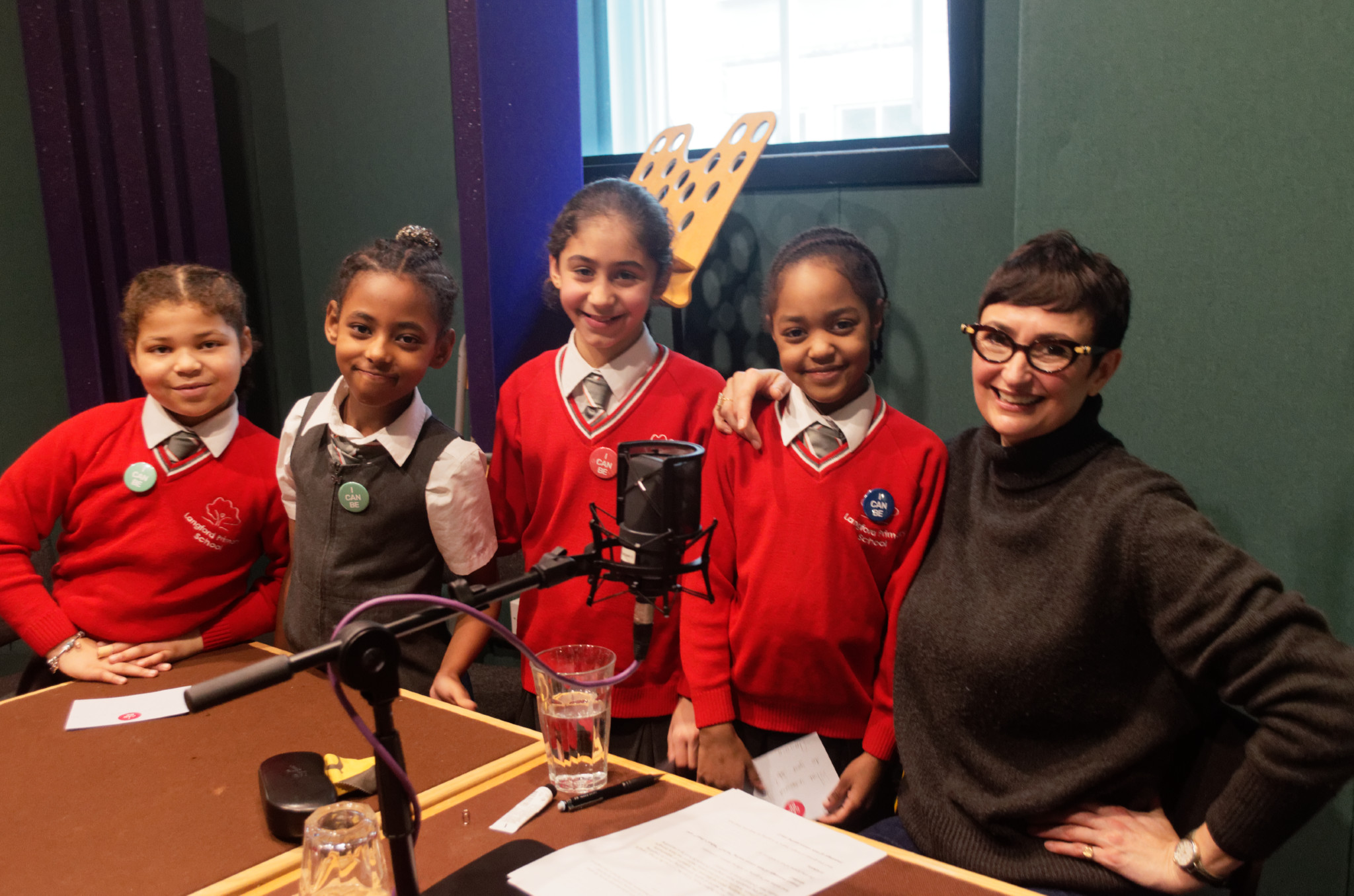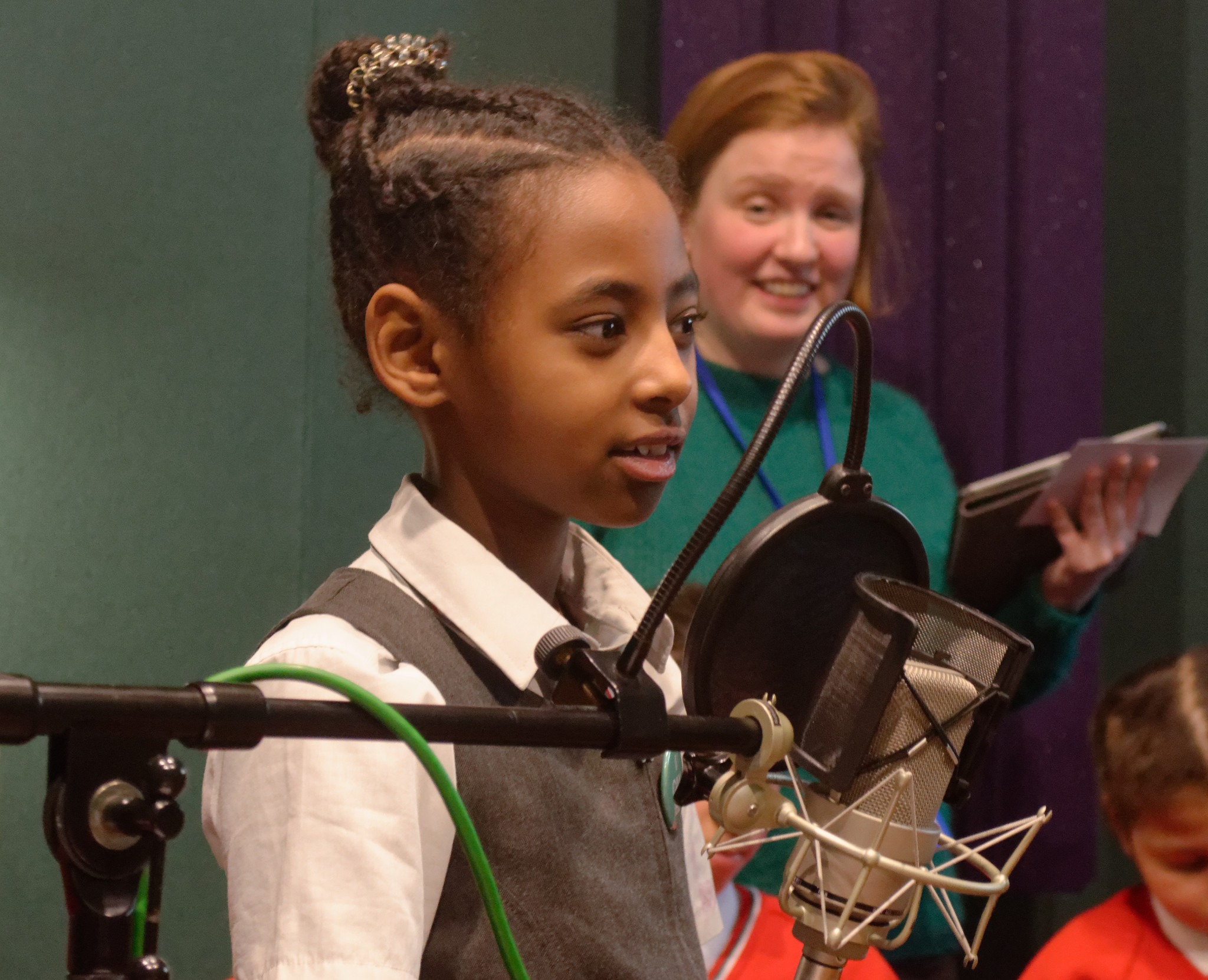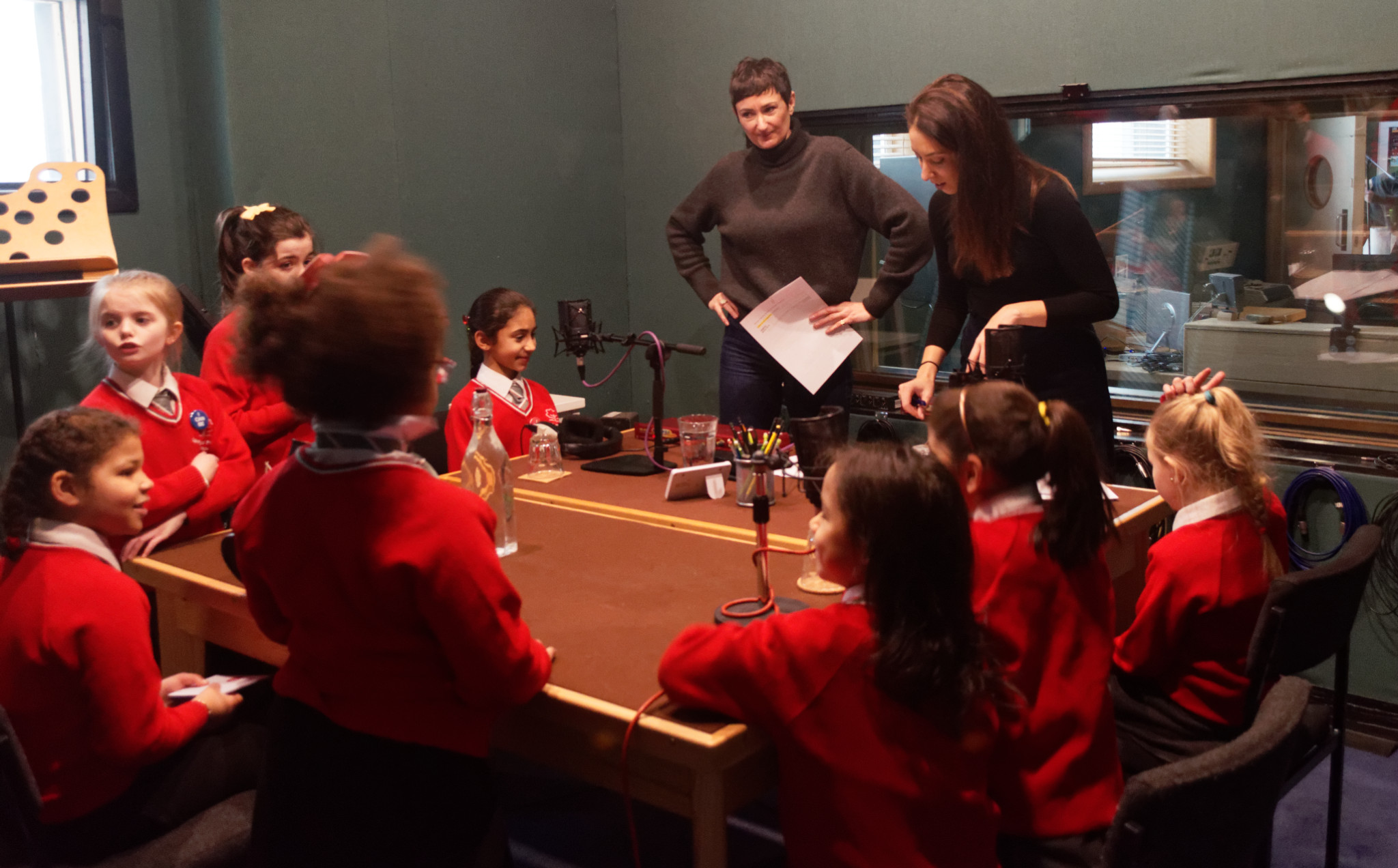
MESSAGE HEARD MEDIA HUB
Undiscovered - What Happened At Unit 731?
Undiscovered - What Happened At Unit 731?
At Unit 731, one of the largest covered up atrocities of World War 2, the Japanese army conducted human experiments using both chemical and germ weapons on living prisoners. We grapple with what actually happened and how it still affects Japan - and the world - today.
At Unit 731, one of the largest covered up atrocities of World War 2, the Japanese army conducted human experiments using both chemical and germ weapons on living prisoners.
However, unlike the Nazis, there were no repercussions for those responsible.
In today’s episode of Undiscovered, we grapple with what actually happened and how it still affects Japan - and the world - today.
Japan’s invasion of the Chinese province of Manchuria is somewhat of a forgotten theatre of the Second World War, in part because the conflict began in 1931 - eight years before Germany invaded Poland.
Records show experimentation began at a site in Ping Fan, near Harbin, in the mid-1930s. The program, which operated under the pseudonym Epidemic Prevention and Water Purification Department, performed experiments on male and female prisoners - most of whom were Chinese or Korean.
In this week's episode, we spoke to two men, Professor Takao Matsumura and Professor Yuki Tanaka, who have spent their careers researching and publishing about Japanese war crimes. In conversation, both detailed the resistance their research about Unit 731 faced and how the crimes are still not widely taught in Japan today.
We explore all these factors, and the stories behind the research into them, in today’s podcast - listen now.
Find out more:
The documentary we reference in the podcast, Unit 731 - Did the Emperor Know, can be viewed at the BFI archives.
A documentary on Unit 731 currently available on Amazon Prime.
And if you want to know more about the Asia-Pacific war more generally - the fastidious Dan Carlin has a 4.5 hour podcast for you.
Undiscovered - Satanic Panic 2.0
Undiscovered - Satanic Panic 2.0
Much like any other belief set, acts of both unspeakable evil and charitable good have been performed under the banner of Satanism.
In today’s episode of Undiscovered we explore both sides to this story.
Much like any other belief set, acts of both unspeakable evil and charitable good have been performed under the banner of Satanism.
In today’s episode of Undiscovered, we explore both sides of this story.
We’ll look more closely at two vastly different world-views: the perspective of those who have suffered abuse at the hands of Satanists and those who believe the rituals and iconography of Satanism can be re-appropriated to build a positive and welcoming community.
In the UK, there is currently no explicit law against Satanic Ritual Abuse (SRA). Victims of SRA and their allies, like Vicky Ash and Wilfred Wong, who we spoke to in this week’s episode, are campaigning to change this. They argue there should be a specific focus on the satanic dimension of the abuse, and punishments that recognise that the name in which these crimes are perpetrated is important as the effects are uniquely traumatising.
There is also a conspiratorial dimension behind their activism. As they fight so hard to have their experiences recognised - our interviewees reported that it feels as if there is a powerful force, a secret group of society's elites, stopping them from getting the justice they deserve.
This idea of secret cabals is in direct contrast to an open, and even performative, brand of Satanists like Zeke Apollyon - High Cardinal of the recently rebranded Global Order of Satan. In the second half of the show, Zeke lays out their philosophy which challenges many negative associations with the occult - whilst leaning into its visual, verbal and ritual motifs.
Tune in to the episode to find out more about these competing, but by no means mutually exclusive, understandings of Satanism.
Undiscovered - The Lion, The Bear and The War Zone
Undiscovered - The Lion, The Bear and The War Zone
This week on Undiscovered, we hear the story of a bear, Lula, and a lion, Simba, who were abandoned in Mosul Zoo during the chaos of Isis occupation and the battle for liberation.
If you feared for your life, would you stop to consider the lives of animals?
In the chaos and destruction of war, the impact of human conflict on animals is easily overlooked. Fortunately, there are people like Dr Amir Khalil who have made it their lives work to rescue forgotten animals from conflict zones.
This week on Undiscovered, we hear the story of a bear, Lula, and a lion, Simba, who were abandoned in Mosul Zoo during the chaos of Isis occupation and the battle for liberation.
You can listen to the entire story now.
Dr Khalil works for charity the international charity, Four Paws, who fight cruelty to animals worldwide. They have saved animals from war zones all over the world including Bosnia, Egypt, Zimbabwe, India, Gaza and Libya. According to The New Yorker, each mission costs tens of thousands of dollars.
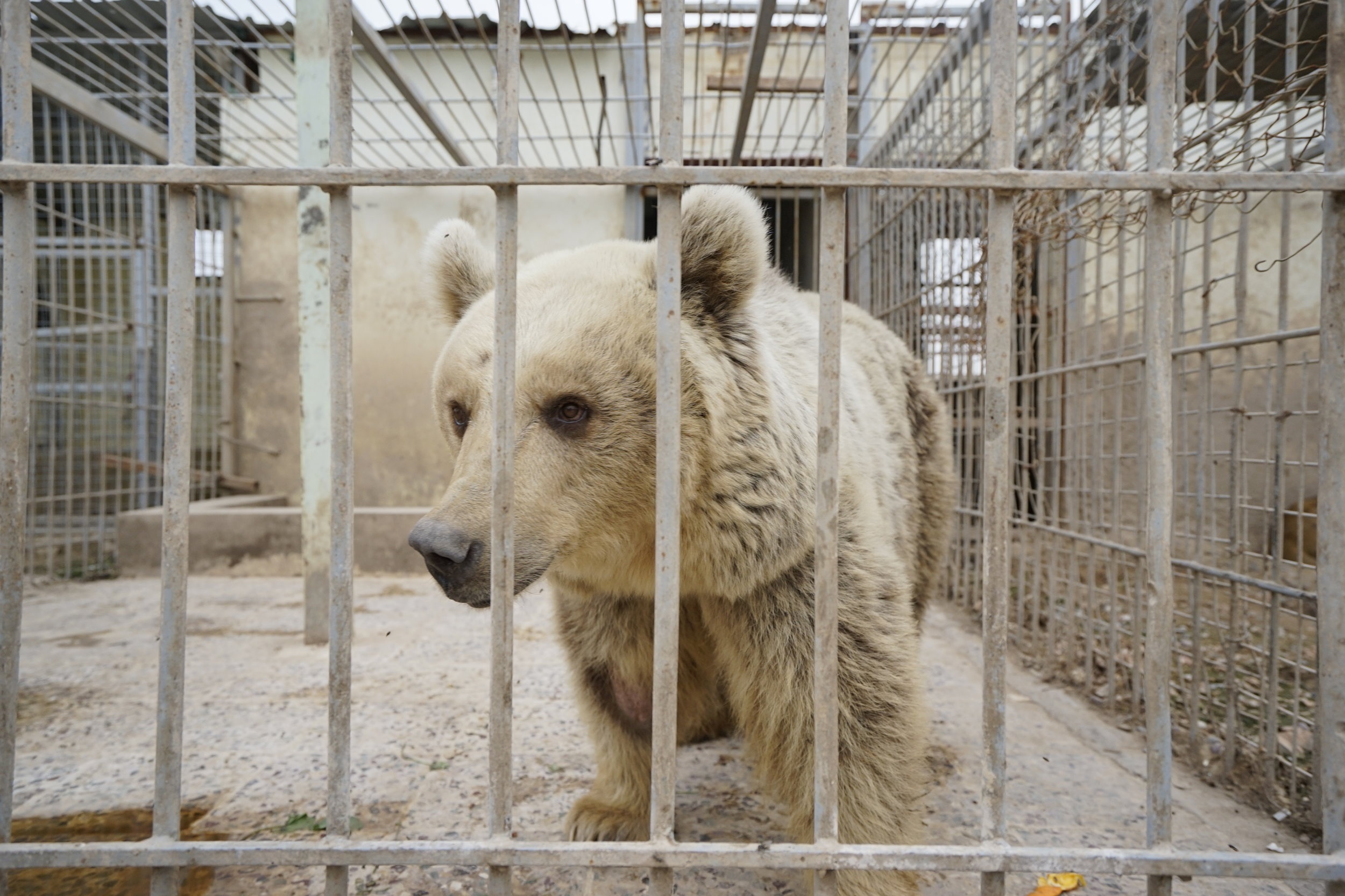
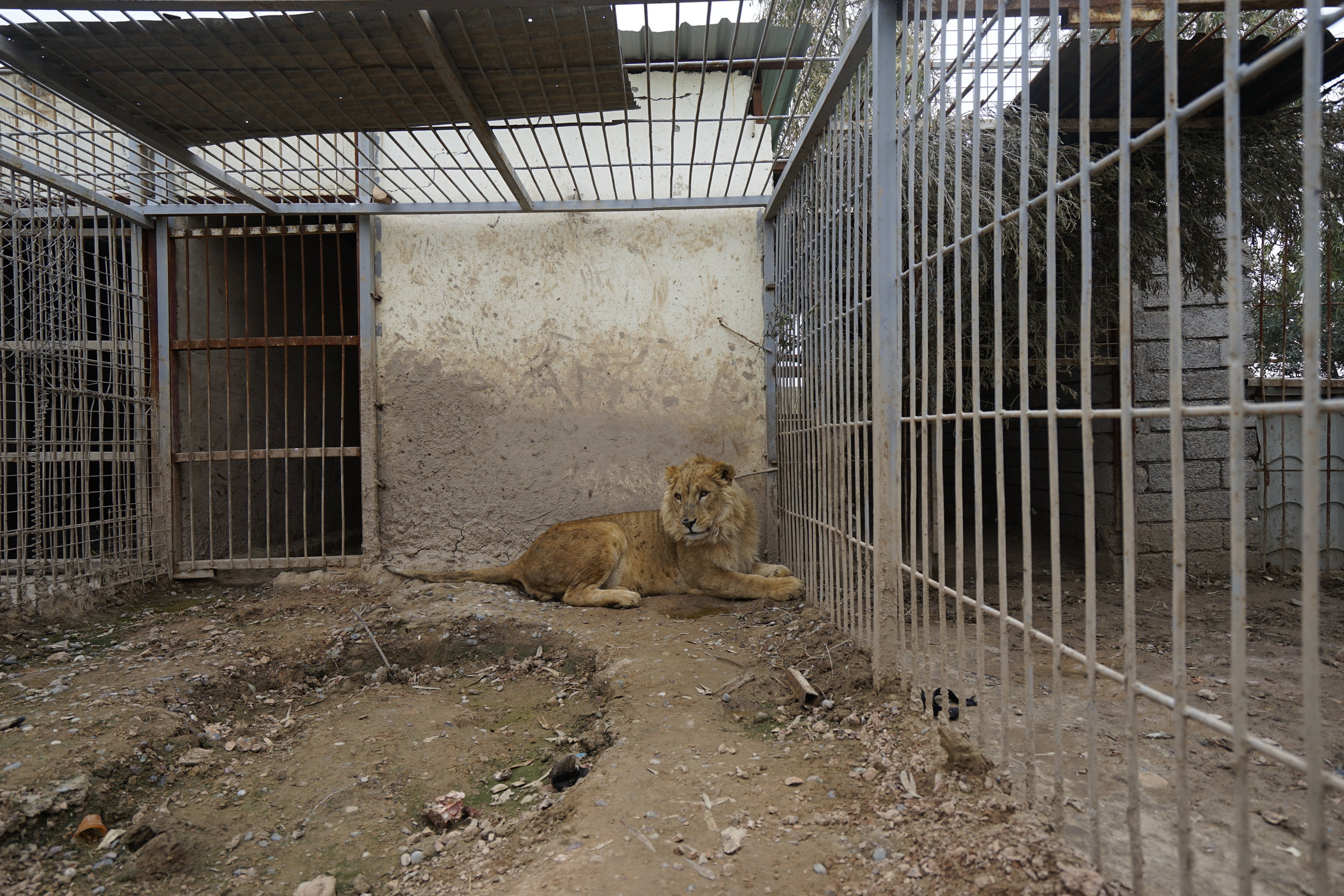
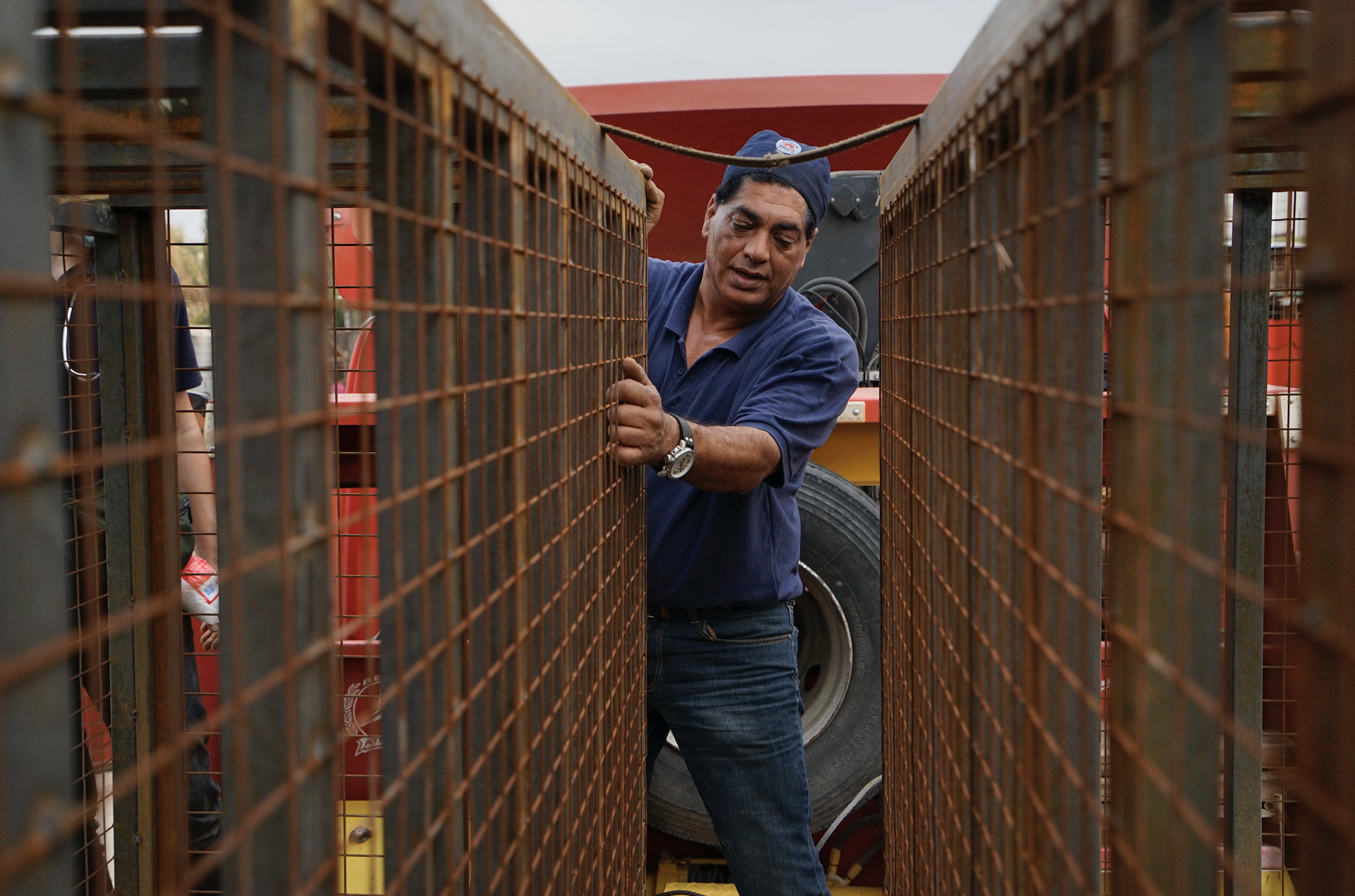
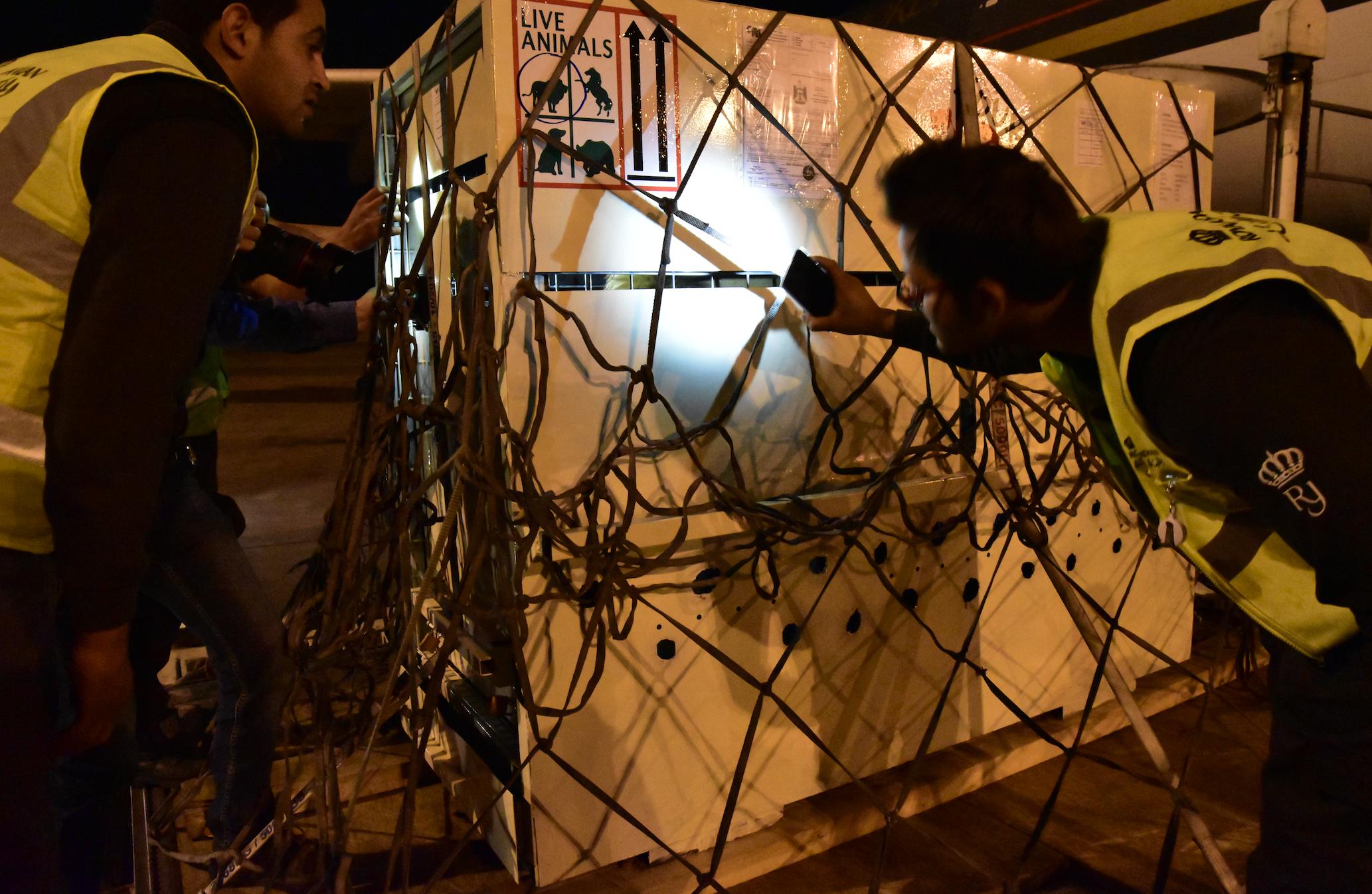
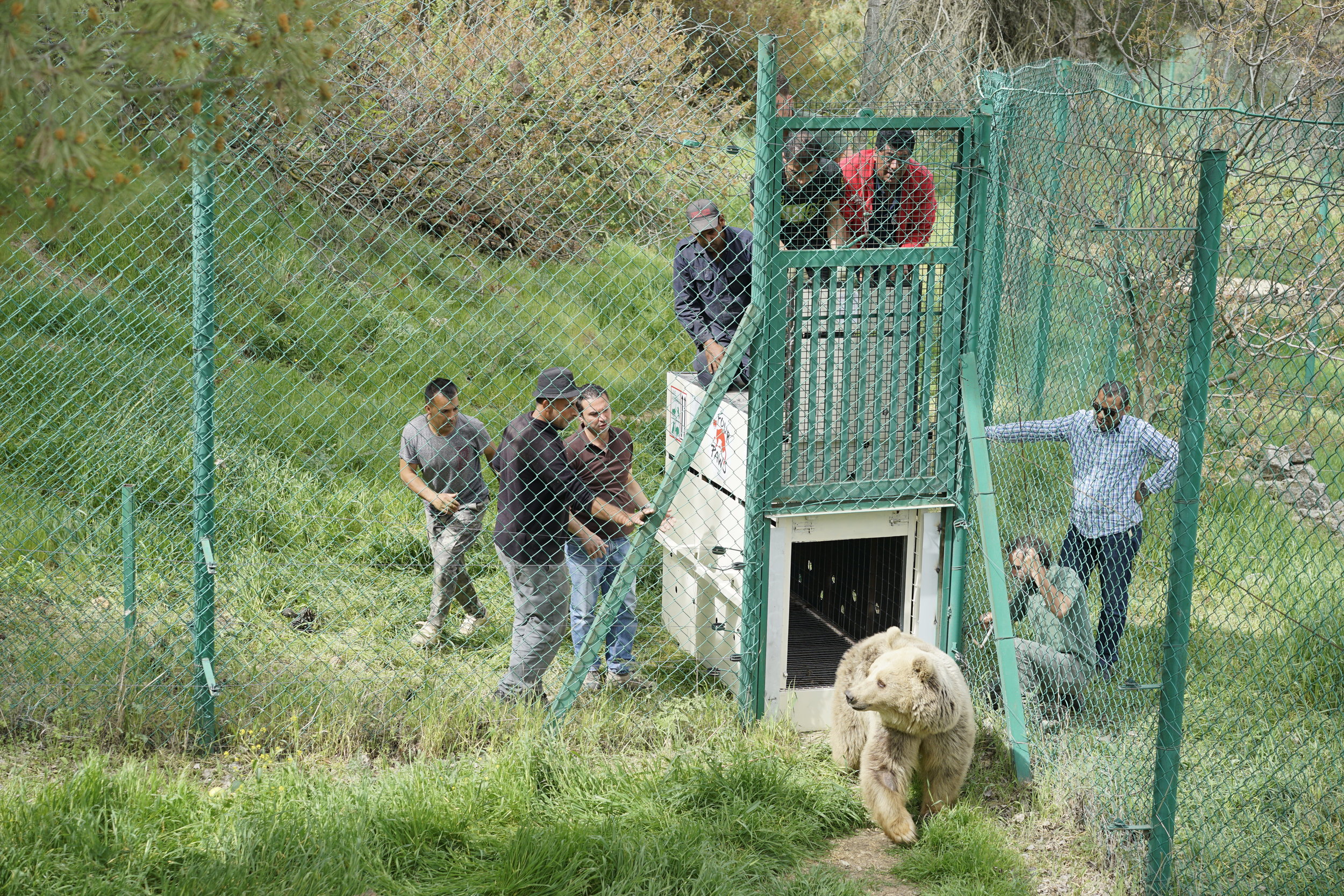
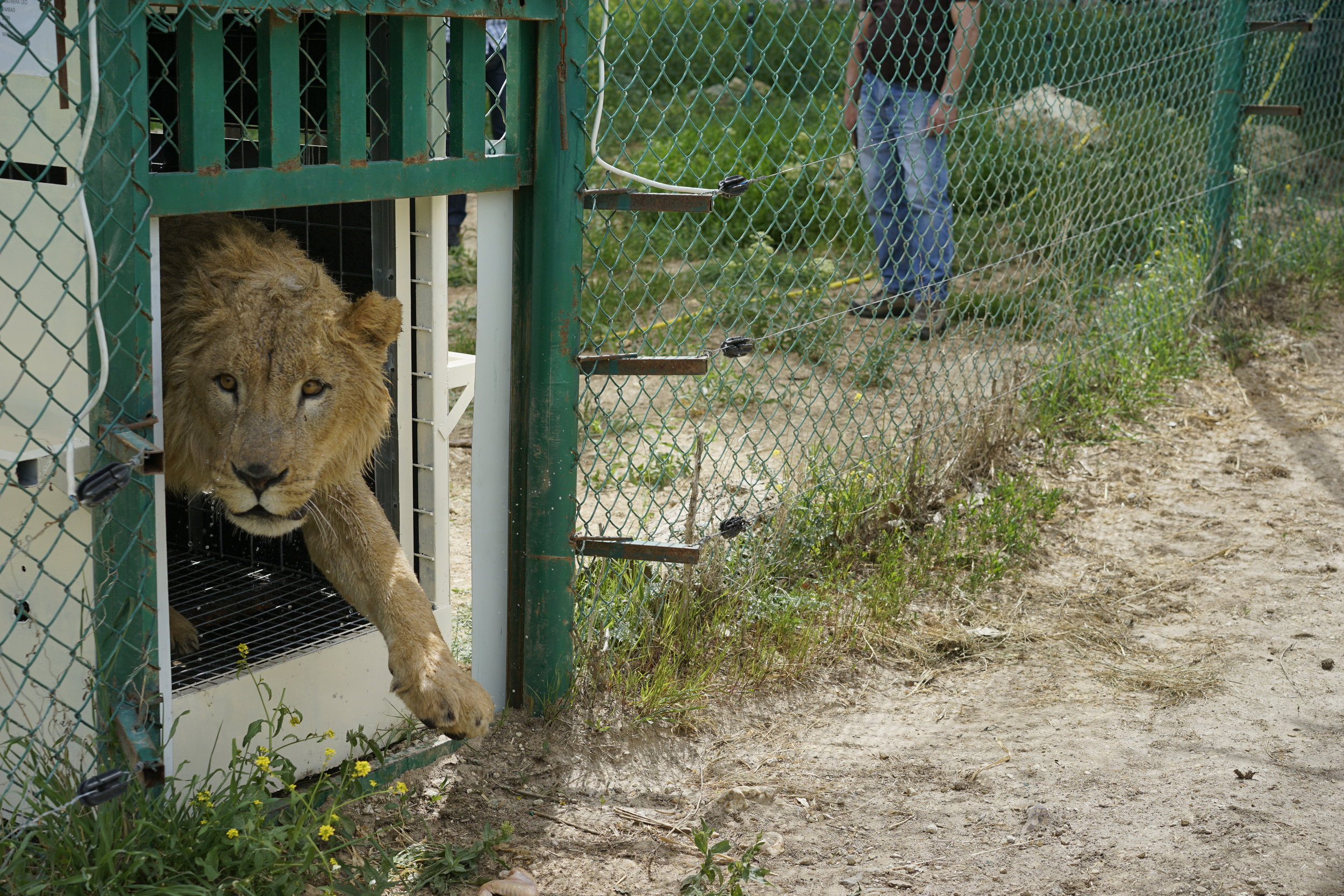
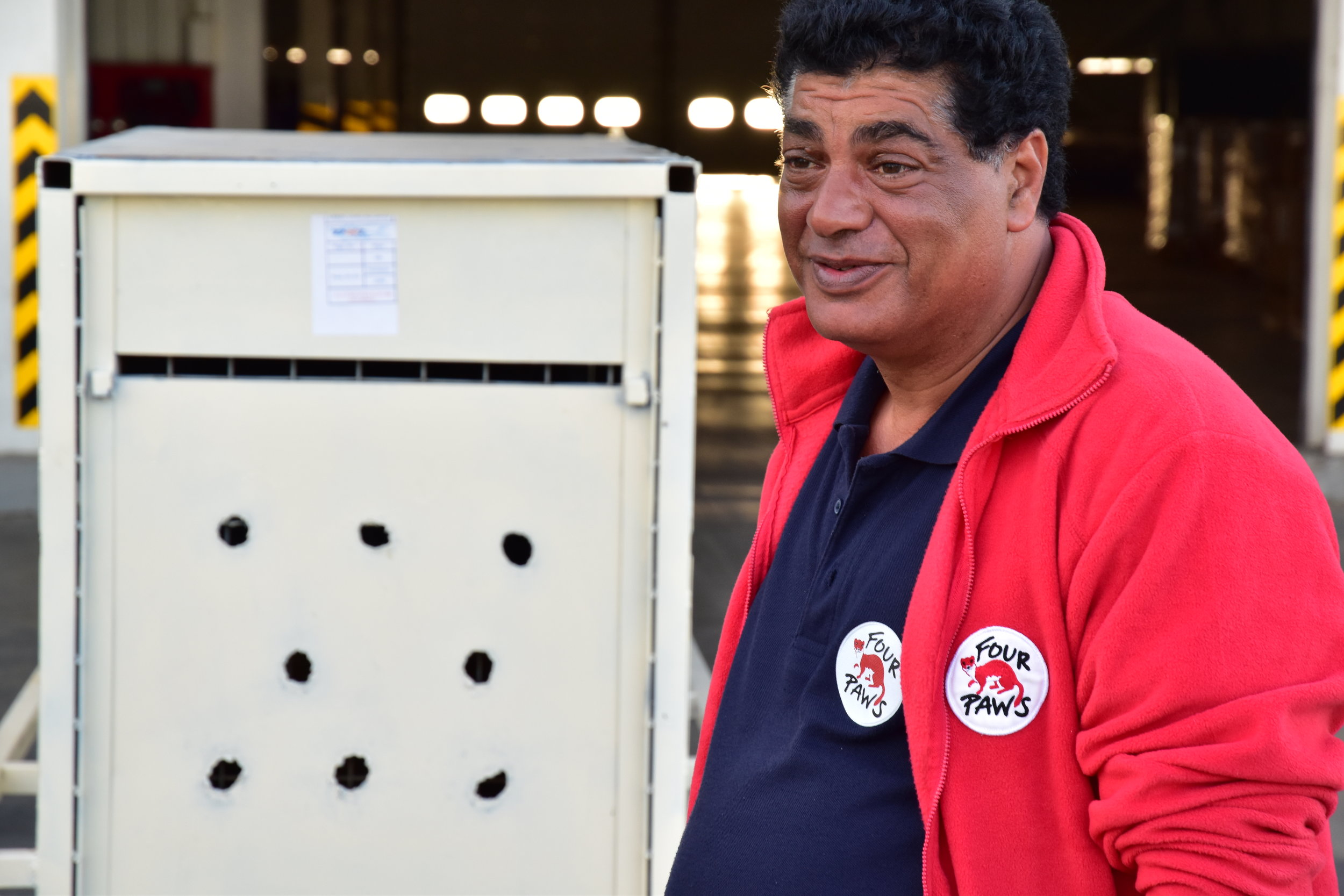
Based on the success of the mission in Mosul, there was a campaign for the charity to come to the aid of a Zoo in Aleppo, which similarly abandoned amid conflict. There they rescued another Lion, Saeed, who is believed to have been born in captivity during the war in Syria. As of February 2018, Simba and Saeed have been moved to their ‘forever home’ in South Africa.
As for Lula, she is still based in the Jordanian wildlife rescue centre “Al Ma'wa for Nature and Wildlife” where her and Simbia were originally evacuated too. She seems to be doing very well.
This is the second episode of our new series Undiscovered - a podcast that cuts through the noise in your newsfeed.
Listen to the whole episode, subscribe and catch up on episode one here.
Undiscovered - Where is Joseph Kony in 2019?
Undiscovered - Where is Joseph Kony in 2019?
In the first episode of Undiscovered, we find look beyond Kony 2012 - taking a look at the vast network of people and organisations that invested in capturing the war lord.
In 2012, a viral video from an American filmmaker made Joseph Kony a household name.
The campaign, ran by Jason Russell and his charity Invisible Children, had a clear goal: make Kony famous.
In only six days, Kony 2012 had become the most viral video of all time with 100 million views. The once obscure Ugandan warlord was plastered across Facebook and Twitter. The campaign was covered by media outlets far and wide - from CNN to Alex Jones.
Mission accomplished? Perhaps not.
Seven years, and $800 million dollars later, he still hasn’t been caught or held accountable for his crimes.
This week on Undiscovered, we find look beyond Kony 2012 - taking a look at the vast network of people and organisations, including the International Criminal Court and President Obama, that invested in capturing the war lord.
In this episode we speak to filmmaker Jason Russell, explorer Robert Young Pelton, conflict analyst Sasha Lezhnev and National Geographic producer JJ Kelley to find out the full story.
This is the first episode of our new series Undiscovered - a podcast that cuts through the noise in your newsfeed.
Listen to the whole episode and subscribe for more here: http://bit.ly/2HMNJNE
Conflicted: Our First Original Podcast
Conflicted: Our First Original Podcast
Message Heard’s first original podcast, Conflicted is a unique offering for UK podcast fans that combines the intimacy of long-form interview with high-level political insight.
Last week, we released the first of a six-part audio series, Conflicted.
Message Heard’s first original podcast, Conflicted is a unique offering for UK podcast fans that combines the intimacy of long-form interview with high-level political insight.
Each week, hosts Aimen Dean and Thomas Small take us step by step through the conflicts that have embroiled the Middle East since 9/11 - illuminating the geo-political complexities through the prism of their unique personal experiences as they go. This odd couple , one a former Al Qaeda bomb-maker, the other a ex-Greek Orthodox Monk, find unexpected common ground as they grapple with fundamentalism, terrorism and the global implications of their lived experience.
They even manage to see the funny side of having a fatwha on your head along the way.
It’s been an exciting first week. The show’s been featured on Apple Podcasts – climbing up to number 8 on the news and politics chart, and 31 on the overall shows chart. After months of painstaking production, it’s exciting be seeing people react and engage in real time.
Episode two is out today – with a new episodes being released every Wednesday. Listen where ever you get your podcasts.
Creating a Podcast for I Can Be
Creating a Podcast for I Can Be
We worked with educational charity I Can Be to create a branded podcast where the tables were turned on our very own production team.
How we created a branded podcast for an educational charity
Educational charity I Can Be believe in leading by example. They don’t just tell young girls they can be whatever they want to be – they show them. By taking girls aged 7 to 8 into different workplaces and introducing them to women doing diverse and interesting jobs, they demonstrate first-hand the breadth of work that women can do.
So, when we were joined in our studio by Lamorna Byford, Project Director at I Can Be, and a group of bright Year Three’s from Langford Primary - we didn’t just show them what podcasting was like, we made a podcast with them!
The tables were turned on our company Chair, Louise Beaumont, and resident producer, Sandra Ferrari, with the girls quizzing them them about what podcasts are, how they are made – and how they make money.
What does good audio quality sound like?
What does good audio quality sound like?
This simple little teaser gives you a back-to-back comparison of what sounds great and what sounds terrible. Can you hear why sound quality is important for engaging your audiences? We can.
Psst - have you been thinking about using podcasting to enhance your brand, start a conversation in your industry or even just communicate better with your staff?
Have a listen to what we do here at Message Heard Creates. This simple little teaser gives you a back-to-back comparison of what sounds great and what sounds terrible. Can you hear why sound quality is important for engaging your audiences? We can.







